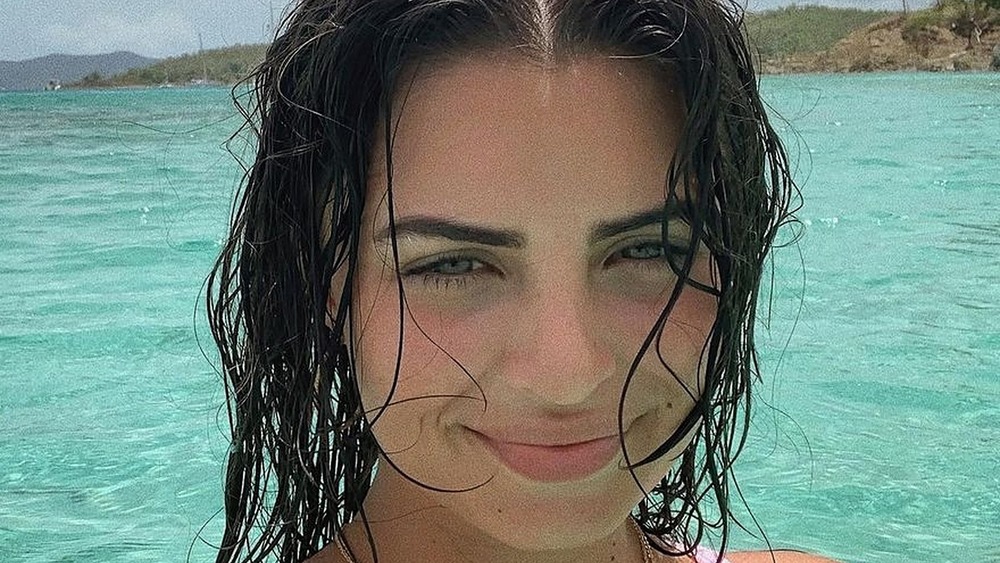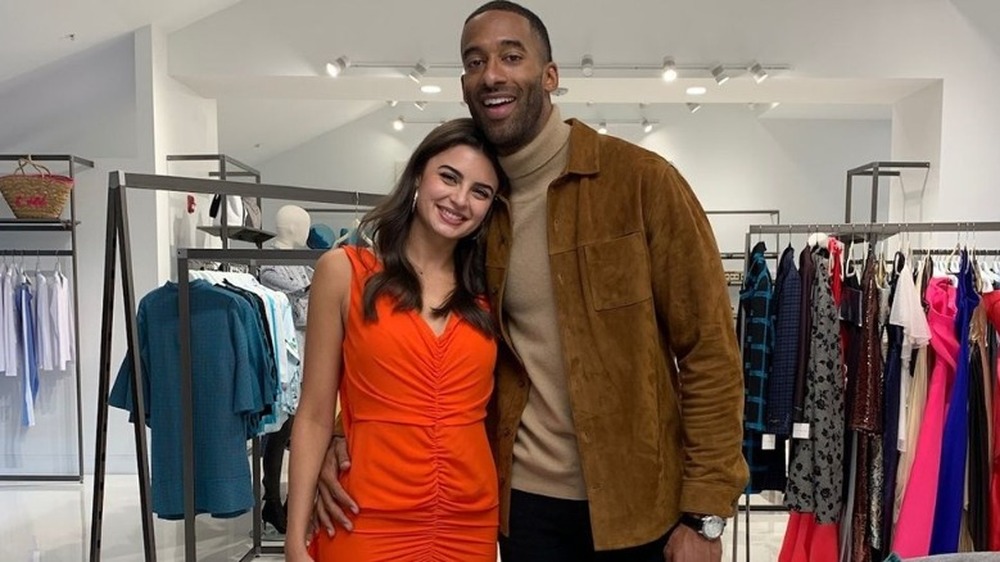Why Rachael Kirkconnell Doesn't Want People To Defend Her Past Actions
Rachael Kirkconnell came to The Bachelor hoping to find her true love, and it's quite possible that she got her wish; as of Episode 8, she was still in the running for Matt James' final rose after the hometown dates (via Entertainment Weekly). But she also got more drama than she bargained for, and for once it had nothing to do with contestant infighting. Her past photos and social media activity indicated that Kirkconnell was either ignorant of or insensitive to racial issues — a sticky situation for someone competing for the heart of the first Black Bachelor (via Variety).
The controversy widened from there. Even as Kirkconnell offered an apology for her past actions and vowed to become more educated on systemic racism, Bachelor host Chris Harrison caught heat when he tried to defend her in an interview with past Bachelorette Rachel Lindsay. His people-were-less-woke-back-then excuse came off as tone-deaf and dismissive of Lindsay. That led to a social media protest by the season's BIPOC contestants, and Harrison opted to take a leave from the show. Suddenly, the hit reality romance became the topic of a hot debate: Was this an outrageous example of "cancel culture," or a call to work for real change in Bachelor Nation?
On Thursday, Rachael herself let it be known which side of the debate she stands on.
Rachael Kirkconnell wants to be held accountable for her past
In a video she posted to her Instagram account, Kirkconnell called for the white community to join her in learning more about anti-racism. "Things will never change if we don't all work together ... working toward this racial unity and equality that we want," she said. She went on to explain that she feels called to use her platform toward this aim, even at the risk of being criticized for it. Her bio now includes a link to her new webpage, which lists books, Insta accounts and other resources for learning more about racial issues.
Kirkconnell also asked the public to stop excusing or minimizing her past behavior. "That's not our place to tell people what they can and can't be offended about. That's wrong, and that's part of the problem," she said. "...In the end, it's not a political issue; it's a humanitarian issue. It's how we treat others."
The post has gotten close to 900,000 views so far. Most of the comments have been overwhelmingly positive, including ones from BIPOC followers who applauded her for "sharing [her] heart" and "doing what [she] can to accept responsibility and educating [herself]." One of the responses came from her sister Trinity, who wrote simply, "I'm proud of you and I love you."

